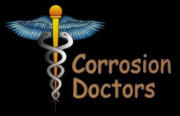Francis Thomas (Tom) Bacon (1904-1992)
 Francis Thomas Bacon was born in 1904, Billericay,
Essex, UK. British engineer who developed the first practical hydrogen-oxygen
fuel cells, which convert air and
fuel directly into electricity through electrochemical processes. A graduate of
Eton College and of Trinity College, Cambridge (B.A., 1925; M.A., 1946), Bacon became
intrigued with fuel cells while working for the electrical company C.A. Parsons
& Co. Ltd. in Newcastle-on-Tyne (1925-40). Although
Sir William Grove had discovered the principle
of fuel cells in 1842, they were considered a scientific curiosity until the early
1940s, when Bacon, then working at King's College, Cambridge, proposed their use
in submarines.
Francis Thomas Bacon was born in 1904, Billericay,
Essex, UK. British engineer who developed the first practical hydrogen-oxygen
fuel cells, which convert air and
fuel directly into electricity through electrochemical processes. A graduate of
Eton College and of Trinity College, Cambridge (B.A., 1925; M.A., 1946), Bacon became
intrigued with fuel cells while working for the electrical company C.A. Parsons
& Co. Ltd. in Newcastle-on-Tyne (1925-40). Although
Sir William Grove had discovered the principle
of fuel cells in 1842, they were considered a scientific curiosity until the early
1940s, when Bacon, then working at King's College, Cambridge, proposed their use
in submarines.
Francis Thomas Bacon began experimenting with alkali electrolytes in the late 1930s, settling on potassium hydroxide (KOH) instead of using the acid electrolytes known since Grove's early discoveries. KOH performed as well as acid electrolytes and was not as corrosive to the electrodes. Bacon's cell also used porous "gas-diffusion electrodes" rather than solid electrodes as Grove had used. Gas-diffusion electrodes increased the surface area in which the reaction between the electrode, the electrolyte and the fuel occurs.
Also, Bacon used pressurized gases to keep the electrolyte from "flooding" the tiny pores in the electrodes. Over the course of the following twenty years, Bacon made enough progress with the alkali cell to present large scale demonstrations. He continued his research with the Anti-submarine Experimental Establishment, then returned to Cambridge (1946), where he demonstrated a successful six-kilowatt fuel cell (1959). The first practical application of this high-efficiency, pollution-free technology was in the Apollo space vehicles of the United States, which used the alkaline fuel cells to provide in-flight power, heat, and clean drinking water, a by-product of the electrochemical reaction.
Bacon sought new applications for fuel cells as a principal consultant to National Research Development Corp. (1956-62), Energy Conservation Ltd. (1962-71), and U.K. Atomic Energy Authority (1971-73). By the end of the century, the technology was being developed internationally. He was made an Officer of the Order of the British Empire (1967), elected a fellow of the Royal Society (1973), and awarded the first Grove Medal (1991).

Connect with us
Contact us today